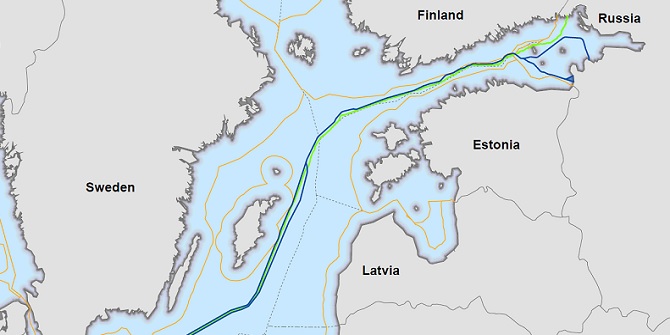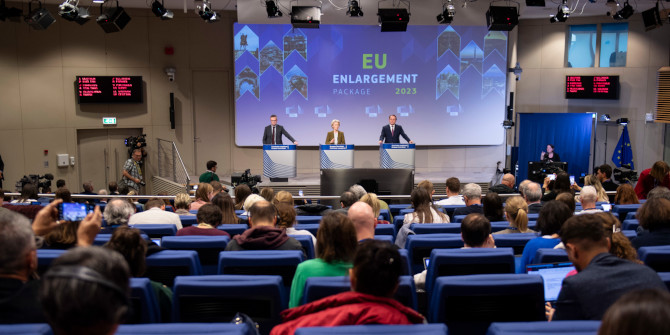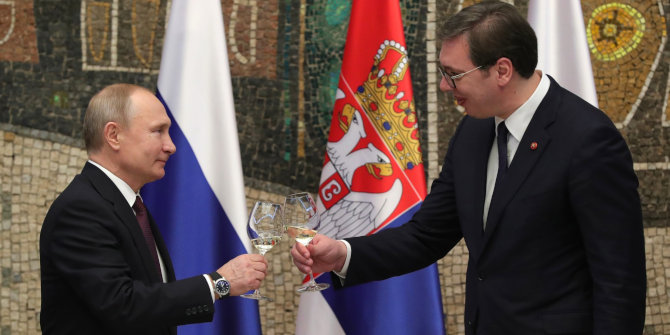A Russian invasion of Ukraine would have devastating consequences for the Ukrainian people. Marnie Howlett argues that while the priority is to deescalate the immediate tensions, it cannot be forgotten that Ukraine has now been living under the threat of conflict and instability for much of its history. Rather than the mere avoidance of war, the country requires a lasting solution that can bring genuine peace and security to its citizens.
As Russia continues to increase its military presence along Ukraine’s borders in preparation for a potential attack, growing support for Ukraine’s independence and territorial sovereignty can be seen across the globe. Numerous state governments, including NATO allies and former Soviet states (for example, Georgia), non-governmental organisations, such as the Ukrainian World Congress, and influential leaders like Pope Francis have all expressed their concerns over the rising tensions, stating that they stand ‘shoulder to shoulder’ with the Ukrainian people.
In calling on Putin to “step back from the brink,” the international community has stated that an invasion by Russia would be met with a “swift, severe and united response,” particularly by the United States and its European allies. Moreover, the possibility of ‘massive’ and rapid sanctions imposed on Russia by the EU, coupled with the recent actions of several administrations to send defensive military personnel, equipment, and aid to Ukraine, materially and symbolically demonstrates widespread support for the post-Soviet state. While the outpouring support in response to the escalating tensions may fundamentally be motivated by fears regarding the regional and economic stability of the European continent and a potential third World War, rather than purely by concerns over Ukraine’s domestic peace and security, it will nonetheless be ordinary Ukrainian citizens who will be most directly impacted should Russia invade the state’s territory.
Yet, lost somewhere in the headlines and discussions about the threat of invasion is the reality of what Russia’s increased military presence along the shared border means for Ukrainians. Though the international community has outwardly stated that Putin is “using Ukraine as a hostage” to renegotiate a settled Cold War outcome and prevent the state from further integrating into the EU and NATO, found less often in policy briefings, political discussions, and even popular discourses is a consideration of what such an attack means for Ukraine’s citizens.
Beyond demonstrating Russia’s continued efforts at re-asserting its dominance in the state’s administration, as well as the larger post-Soviet space, an invasion would result in significant civilian causalities, material and infrastructural destruction, and economic decimation for Ukraine. As with any war, active combat would likewise drastically disrupt the established social, political, and economic processes and structures at the grassroots; motivate feelings of distress, anxiety, and fear amongst citizens; and culminate in mass mobilisation and displacement. In this way, the global community stating that they #standwithUkraine indeed demonstrates incredible “international unity in the face of growing Russian hostility,” but also misses the psychological, emotional, and tangible effects that this threat poses to the everyday lives of Ukrainian people.
Moreover, war is not a new reality for Ukrainians. Since the annexation of Crimea in early 2014, which immediately followed the societal upheaval of the Euromaidan protests on Kyiv’s Independence Square from November 2013, citizens of Ukraine have been living under a state of ambiguity due the simultaneous and competing forces of war and peace. Although the occupation of the country’s eastern regions by Russian separatist forces in 2014 did result in a ceasefire and peace agreement in 2015, hostility and tensions did not quickly dissipate.
Still, Ukraine experienced other internal clashes – which were mostly nonviolent – long before the events of eight years ago as its citizens fought for democracy, freedom, and justice, such as during the Orange Revolution of 2004. Even without considering the socio-economic and political crisis which led to the collapse of the Soviet Union, and the challenges of corruption and cronyism faced by the state in the years immediately following its independence, conflict (or at least, the threat of conflict) has evidently been a constant part of Ukraine’s – and thus Ukrainians’ – narrative for much of its history.
The current threat of war between Ukraine and Russia therefore encourages us to consider how we understand the ‘peace’ that the international community appears so committed to defending. Whereas ‘peace’ can certainly be understood as a state of harmony and serenity, the same term is likewise used to describe the periods both immediately prior to and following a conflict.
Yet, the Ukraine case shows us that the absence of war does not necessarily, nor always, equate to the tranquil order also recognised as ‘peace’. Both pre- and post-conflict times have still been marked by considerable volatility, anxieties (about both preceding and impending conflict), and feelings of uncertainty and fear at the grassroots. In this way, periods without conflict, although technically more ‘peaceful’ than the violence and strife of an active battle, paradoxically, see similar grassroots dynamics and comparable psycho-emotive responses as periods of conflict due to the existentialism instigated by the mere threat of war.
Accordingly, it may indeed be both the harmony of, and absence of war in, Europe and the global order that national leaders are currently seeking to protect by preventing active conflict between Ukraine and Russia. But doing so only ensures one type of peace in Ukraine – the absence of war – as a tranquil order does not exist to be defended, nor has one arguably ever truly been realised in the state’s thirty years of independence, especially not within the last decade. Hence, while there is very much an urgent need to defend the peace of the Ukrainian state, as well as the entire European continent, the necessity of fundamentally establishing and also defending peace within the Ukrainian state has perhaps never been clearer.
Note: This article gives the views of the author, not the position of EUROPP – European Politics and Policy or the London School of Economics. Featured image credit: Viktor Talashuk on Unsplash






Got your Orwellian info all wrong. In fact since the breakup it is meddling by western interests usually the corrupt kind that has fueled tensions in the region. The brutal proxy war in eastern Ukraine has caused thousands of deaths to loyal Russian ethnic Ukrainians which the Ukraine gvt does not even recognize as citizens along with Greeks and others who have inhabited the area for thousands of years. So back to your books and attempt to derive a more objective and humane theory about war and peace.
Rusia es una dictadura donde impera la manipulación de las noticias,o sea . “La Posverdad”(1984 de Orwell) .En Rusia los medios de información están censurados, y los opositores perseguidos, y a veces asesinados.Putin ,como nuevo Hitler, ha creado una Gestapo, manipula la historia para justificar su criminal guerra contra un país soberano y hermano, y prohibe incluso que los niños expresen su solidaridad con Ucrania.